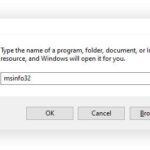For military spouses who are already certified nurse aides (CNAs) in another state, obtaining a Texas CNA certification can be a streamlined process. The Texas Health and Human Services Commission (HHSC) offers a specific pathway designed to recognize out-of-state certifications for military spouses stationed in Texas. This guide will walk you through the steps to leverage your existing credentials and become a certified nurse aide in the state of Texas.
Eligibility for Military Spouses
To be eligible for CNA certification in Texas as a military spouse, you must meet the following criteria:
- Active Military Spouse Status: You must be the spouse of an active duty member of the United States Armed Forces.
- Current Nurse Aide Certification in Another State: You must hold a valid and active nurse aide certification from a state other than Texas.
If you meet these requirements, you have the option to pursue a Texas nurse aide certificate through a military spouse waiver, which may be a faster route than reciprocity. This waiver is valid for three years, contingent upon maintaining active CNA status in your original state of certification.
Steps to Obtain Your Texas CNA Certification
The process involves several key steps, primarily managed through the TULIP online system:
1. Complete a DPS Criminal History Check
Prior to applying, you are required to undergo a criminal history check through the Texas Department of Public Safety (DPS) Crime Records division. This check is mandatory and applies to all names you have previously used. Each check incurs a fee. You can initiate this process on the Texas DPS website. Ensure you retain the results of this check, as you will need to upload them during your application.
2. Submit Your Application via TULIP
The next step is to apply through the TULIP Online Licensure Application System. Once logged in, you will need to complete the “Nurse Aide Certificate for Military Spouse Stationed in Texas Application.”
- Form 5506-NAR (if needed): If your out-of-state certification does not include an expiration date, you will need to complete and upload Form 5506-NAR. This form helps verify your certification details.
3. Upload Required Documents
TULIP requires you to upload several documents to support your application. Ensure you have digital copies of the following ready for upload:
- DPS criminal history check results
- Form 5506-NAR (if applicable)
- Valid government-issued photo ID
- Your military ID
- Spouse’s military orders (stationing them in Texas)
- Your Social Security card
- Proof of your current Texas address (e.g., utility bill)
- Copy of your nurse aide certificate from another state
4. HHSC Application Review and Certification
Once you submit your complete application and all required documents through TULIP, HHSC staff will review your submission. They will check for completeness and accuracy, and also verify your status against the Employee Misconduct Registry.
If there are any deficiencies in your application, it will be placed in “Response Required” status within TULIP. You will be notified to correct these issues and resubmit the necessary information.
Upon successful review and verification, HHSC will issue your Texas nurse aide certificate. This certificate will be valid for three years, provided you maintain active nurse aide status in the state where your original certification was issued. You will receive an email notification from TULIP once your certificate is issued, and HHSC will also email you a verification letter for your records.
Conclusion
Becoming a CNA in Texas as a military spouse is made accessible through a specific waiver process that acknowledges your existing qualifications. By following these steps and ensuring you provide all necessary documentation through the TULIP system, you can efficiently obtain your Texas CNA certification and continue your healthcare career in your new duty station. This streamlined approach helps military families maintain professional continuity during relocations, recognizing the valuable skills and experience military spouses bring to the Texas healthcare sector.

